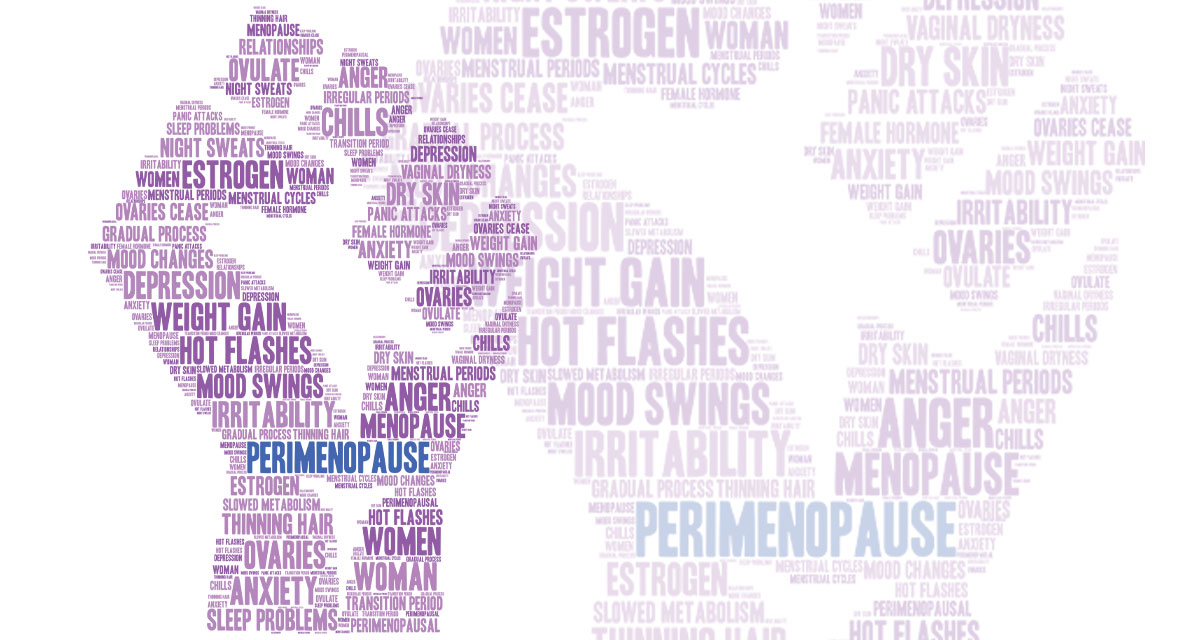No one chooses to board the topsy-turvy roller coaster ride of perimenopause! Permission sounds too much like a courtesy! Instead, the bumpy ride can wreak emotional, mental, and physical havoc on women’s lives!
Welcome to the Club!
A club comprising 37 million American women, ranging in age from 40 to 60, who understand each other, especially when the words, “Is it hot in here, or is it me?” call out to the room. Instantly, curious smiles and nods appear! Without knowing when the clock chimed, perimenopause arrives. You’re not alone if you, too, feel irritable with a whole host of problems from difficulty sleeping to night sweats, weight gain and excess belly flab to new hormonal mood swings, loss of sexual urges, and forgetfulness. It’s an overwhelming list; however, every aspect is a chemical imbalance! As ovary production slows estrogen and progesterone levels, the snowball effect impacts the mind and body.
How to Tackle Change
We, too, must evolve by altering our daily habits and food intake. Perimenopause permits you to start pampering yourself!
- Self-Care: Start providing for your physical, emotional, and spiritual needs; therefore, take time to rest, enjoy friendships, join groups, pursue hobbies, and be present in the world.
- Weight Awareness: Losing muscle around the abdomen, hips, and thighs can change the way your clothes fit without your being aware of it. The solution is to increase physical activity. Grab the girls or the family and start an exercise regimen, such as walking, bicycling, taking yoga, or Pilates. Or, sign up to join a group cardio workout. Physical activity increases the production and repair of existing brain cells, fostering memory.
- Consume Fewer Calories: Sugar accounts for an additional 300 calories per day in the average American diet. It’s easy to surrender to baked goods, ice-cream, candy, and sugar-sweeteners found in soft drinks, juices, energy drinks, flavored waters, sweetened coffee, and tea. Changing habits by reducing the number of calories consumed begins by increasing nutrition. Boron-containing foods, such as green leafy vegetables, fruits, nuts, and legumes, will balance estrogen levels and prevent the onset of osteoporosis. It’s vital to consume more low-fat dairy products and eat less chicken and red meat.
- Indian Cuisine: Turmeric is a medicinal, golden spice packed with antioxidants. While possessing antimicrobial, anti-inflammatory, and healing properties, it is relevant to perimenopause health disorders. Whether you chose to enjoy Indian cuisine or take a supplement, turmeric can help elevate and balance estrogen levels.
- One Glass Please: Red wine contains resveratrol, which prevents free radicals from damaging brain cells. Just one glass will help keep memory loss at bay! However, its important not to overindulge. Additional intake can put you at risk for cancer and other diseases!
- Magnesium Supplements: A powerful stress-reliever that regulates the nervous system, blood sugar, thyroid health, slows the aging process, and promotes sleep. Research magnesium glycinate to understand the complete list of benefits for the body, mind, and spirit. A 500-mg magnesium glycinate tablet is likely to include 100 gm of magnesium.
- Taurine, A Secondary Supplement: Complementing magnesium, taurine
benefits perimenopausal symptoms by balancing the nervous symptoms (anxiety, migraine headaches, and difficulty sleeping.) and suppressing the appetite. The recommended daily intake is 500 mg.
- Research: Validation comes in understanding the chemical changes occurring within the body. Start interviewing immediate family members on their experiences, and read about the transition from perimenopause to menopause. Prepare questions for your doctor to learn your options. Some women prefer diet and exercise, while others seek to correct excessive bleeding cycles medically or surgically.
Lastly, surround yourself with loved ones and friends who support your efforts to live healthily!
Reaching Menopause
The average age at menopause is 51, but symptoms can begin a decade before and last years after. Twenty-five percent of women experience no symptoms; yet, each individual’s journeys can improve with knowledge, natural supplements, a well-balanced diet, and self-care!



















